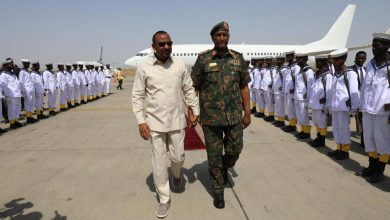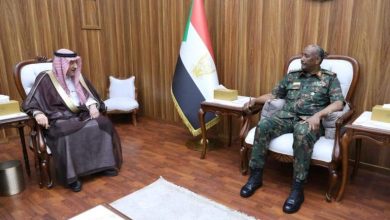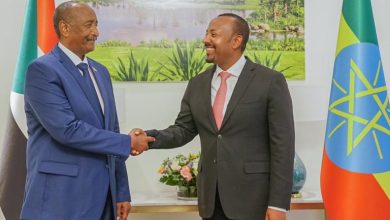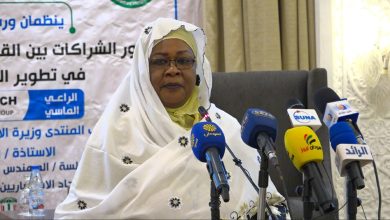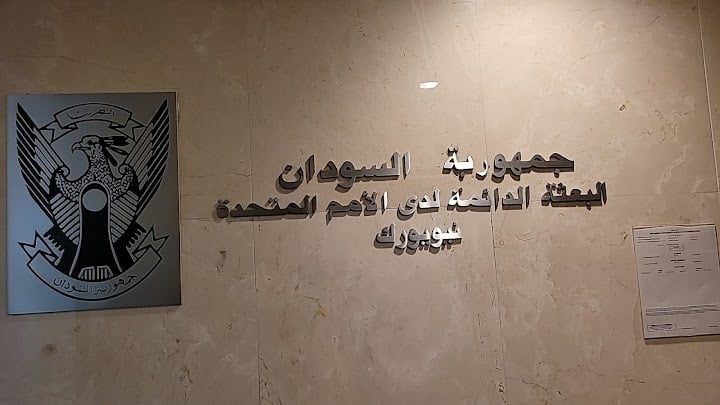
Almohagig – Maryam Abasher
Last week, Sudan’s Permanent Representative to New York received a written message from Martin Griffiths, the United Nations Under-Secretary-General for Humanitarian Affairs and Emergency Relief Coordinator, on his resignation effective today (Monday, July 1).
In his message, Griffiths mentioned that he leaves his position “with a heavy heart due to the outbreak of wars in several countries with increased brutality, adding more crises to already unresolved and prolonged conflicts, as well as disasters and other crises exacerbating the number of hungry and displaced people.” Despite his sense of frustration, Griffiths, in the same message, expressed hope for the future because those he addressed “continue to lead responsibility in the international community for humanity.”
*Strong Presence*
Although Martin Griffiths’ message appeared to be a general communication to other country representatives at the United Nations upon his departure from one of the organization’s most important mechanisms (Humanitarian Affairs), it also reflects the extent of the communication and coordination between Sudan’s Permanent Mission in New York and UN mechanisms, including the Security Council.
In June, the
Security Council held two sessions on Sudan, during which the Permanent Mission had a strong presence through its precise follow-ups and strong statements, vigorously presenting the Sudanese government’s perspective on the war, humanitarian conditions, and international engagement. The Mission’s statements also unequivocally identified those responsible for the war in Sudan with evidence and documents.
*Continuous Coordination*
The Mission’s coordination and communication with the United Nations and its Secretary-General regarding the repercussions of the ongoing war in Sudan for over a year and ways to find a peaceful settlement were evident in a meeting held in New York over the past two days between the leadership of Sudan’s Permanent Mission and the Secretary-General’s Special Envoy to Sudan, Ramadan Lamamra. Although no detailed information about the meeting was released, sources did not rule out that Lamamra delivered an invitation from the Secretary-General to the Mission’s leadership to resume dialogue between the army and the Rapid Support Forces militia.
Media reports indicated that both parties to the conflict received an official invitation from UN Secretary-General Antonio Guterres to resume dialogue.
*Duty of Representatives*
One of the essential duties of permanent missions of countries to the United Nations is close cooperation and coordination with the Secretary-General, his deputies, and specialized staff in the Secretariat, especially for countries like Sudan that have issues and complexities with the international organization and Security Council members. This was noted by a diplomatic affairs expert speaking to “Almohagig,” who stated that Sudan’s Permanent Mission in New York has managed over decades, particularly after the Darfur crisis reached the UN corridors, to maintain good working relationships with successive Secretaries-General, Security Council members, and the Secretary-General’s envoys and representatives. This has been evident in the drafting of resolutions, presidential statements, press releases, and decisions issued by the Security Council or the General Assembly of the United Nations.
The expert, who preferred to remain anonymous, pointed to the successful cooperation between the Mission and the international organization, exemplified by Sudan’s success in ending the mandate of the United Nations-African Union Mission in Darfur (UNAMID) and expelling Volker Perthes, head of the United Nations Integrated Transition Assistance Mission in Sudan (UNITAMS), and then terminating the Mission’s mandate altogether. Both actions were taken without leaving notable impacts on Sudan’s relations with the international organization.
The expert also mentioned that there are numerous issues concerning Sudan under consideration by the international organization, such as the situation in Abyei, child recruitment, human rights, civilian protection in conflict areas, humanitarian assistance, and other files, all of which involve continuous work and coordination with specialized offices at the United Nations headquarters in New York and other geographical regions.
*The Organization’s Inability*
Some individuals interested in UN and diplomatic affairs have expressed frustration with the weakness, inability, and lack of capacity of the United Nations and its mechanisms to implement the resolutions and executive orders it issues regarding pressing issues, crises, and wars, including the dire humanitarian consequences. This inability is increasingly attributed to the control exerted by major powers, especially the permanent members, over the Security Council.
Merely a Forum for Discussion
In this context, former Undersecretary of the Ministry of Foreign Affairs, Ambassador Sadiq Abdul Aziz, described the UN and its affiliates as resembling a forum for competition and discussion among members, lacking teeth, prestige, or implementation capacity. He added that the UN no longer plays a role in solving problems, citing the situation in Gaza as evidence. Regarding the war in Sudan and the violations committed during it, Ambassador Sadiq referred to the UN’s expert committee, which presented a report to the Secretary-General that needed no clarification. Despite this, the UN has done nothing because it is no longer effective.


